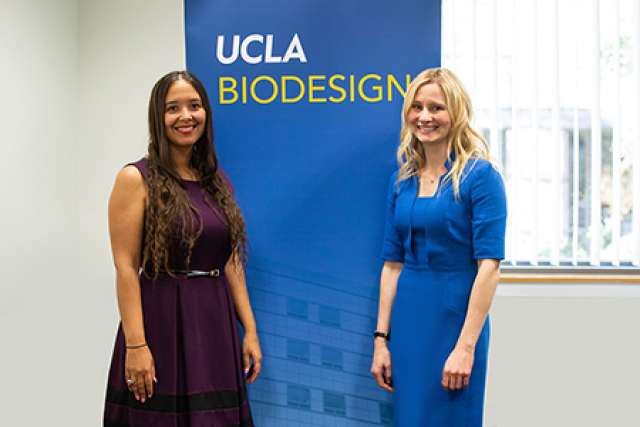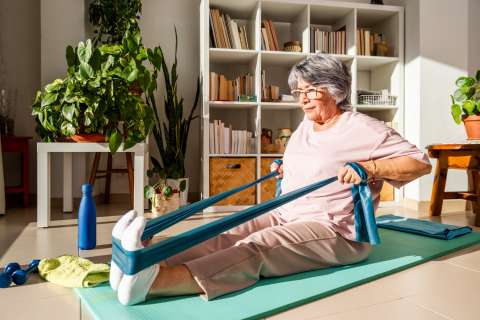UCLA has been awarded a grant from the U.S. Department of Commerce’s Economic Development Administration to create a regional hub for the development of medical technology and digital health tools.
The launch of the UCLA Biodesign Hub for Medical Technology and Digital Health Innovation is the first-of-its-kind interdisciplinary effort to harness the clinical strengths of the UCLA Health system, which is ranked No. 1 in California and No. 6 in the nation by U.S. News & World Report. The hub is part of the Innovation at UCLA Health initiative.
"Bridging the gap between medicine and technology is key to advancing patient care," said Desert Horse-Grant, senior director of UCLA Health Research and Innovation. "The UCLA Biodesign Hub positions UCLA Health as a regional center for innovation in Southern California in partnership with technology companies."
The Regional Innovation Strategies i6 Challenge Award of $750,000 was matched by UCLA Health and the David Geffen School of Medicine at UCLA, to provide $1.5 million in total funding over three years.
Leveraging the hotbed of activity in the tech center known as Silicon Beach — home to hundreds of startups in Southern California — the UCLA Biodesign Hub will collaborate with industry, starting Oct. 1, to fuel entrepreneurship and create new jobs and businesses in the life sciences field.
In 2018 alone, the life sciences industry in California generated $346 billion in economic activity and accounted for 1.3 million jobs in the state — half in Southern California, according to Biocom, an association representing the California life sciences industry.
"Los Angeles is where the world comes to innovate and create, and UCLA is a proud part of that tradition with students, teachers and staff using their knowledge to improve our world," said Los Angeles Mayor Eric Garcetti. "With this prestigious award, UCLA's Biodesign Hub will ensure Los Angeles continues to produce entrepreneurs who will lead the next wave of biotech innovation."
Medtronic, Google, Samsung and other companies are supporting the regional initiative, recognizing that the "tech" in medical technology requires support from many industry segments.
"By supporting academic pursuits that focus on medical technology, Medtronic hopes to strengthen local talent and capabilities in Southern California," said Rebecca Gottlieb, vice president of research and technology for the Diabetes Group at Medtronic, headquartered in Northridge, Calif.
The cornerstone of the effort is an innovation fellowship program, UCLA Biodesign, co-led by Horse-Grant and Jennifer McCaney, executive director. Linking the medical community and industry partners to train the next generation of health care entrepreneurs, UCLA Biodesign began sponsoring 10 innovation fellows and a team of four MBA graduates on Aug. 1. The teams are working to identify and advance technologies that address unmet clinical needs.
"Tech has become synonymous with the development and adoption of health care innovations," said McCaney, an associate director of the UCLA Clinical and Translational Science Institute and an assistant professor of medicine at the Geffen School of Medicine. "Scaling our regional health technology footprint, however, requires expertise and resources that have yet to be leveraged in Los Angeles."
The UCLA award follows a recent announcement by Los Angeles County Supervisor Mark Ridley-Thomas of the formation of Bioscience Los Angeles County, or BioLA, which aims to connect government, research institutions and private investors to accelerate economic activity in the region.
The UCLA Biodesign Hub is open to partnerships in its mission to train future health care leaders and to advance the growing health technology ecosystem in Southern California.



